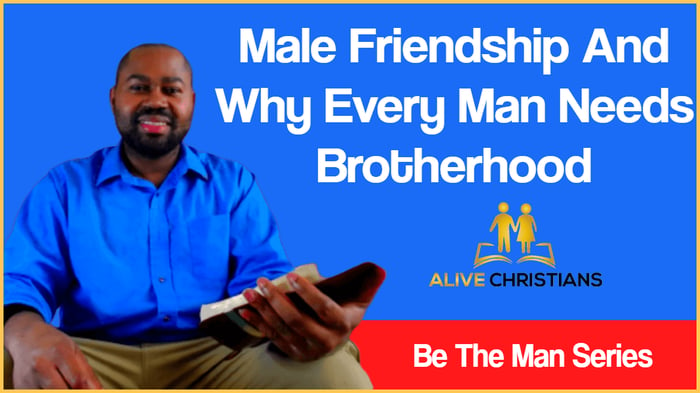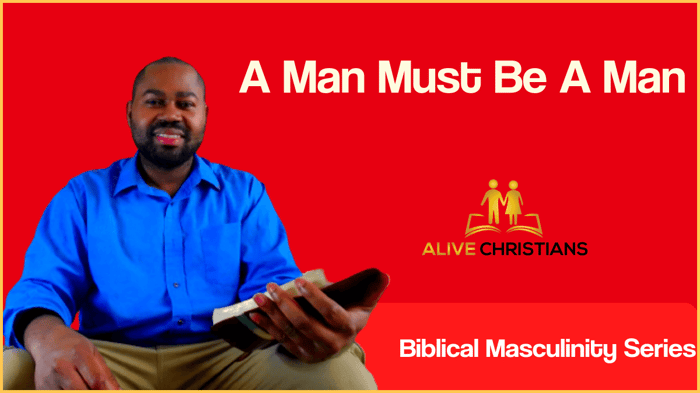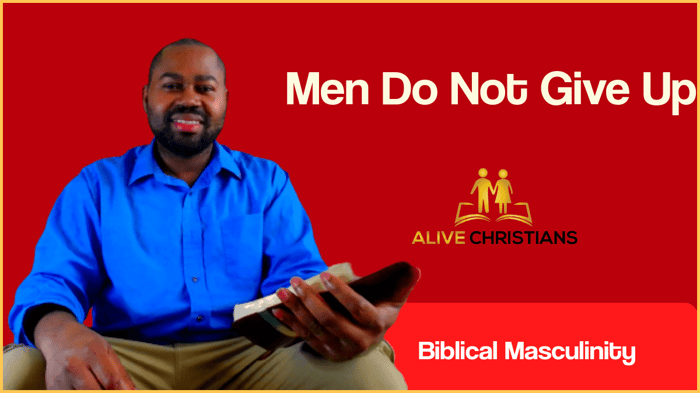Platonic male-male friendships need to make a comeback. We as men are lonely, and it's not helping us one bit.
Men need friendships with other men.
We'll get into this shortly, but for now, just take a look at these studies:
About 16% of U.S. adults say they feel lonely or isolated all or most of the time — roughly the same rate for men and women.
Source: Pew Research Center, Men, Women, and Social Connections (2025).Only 38% of men say they would be “extremely or very likely” to turn to a friend for emotional support, compared with 54% of women.
Source: Pew Research Center, Men, Women, and Social Connections (2025).In the past week, 30% of men reported having a private conversation with a friend about personal feelings, versus 48% of women.
Source: American Survey Center, The State of American Friendship (2021).
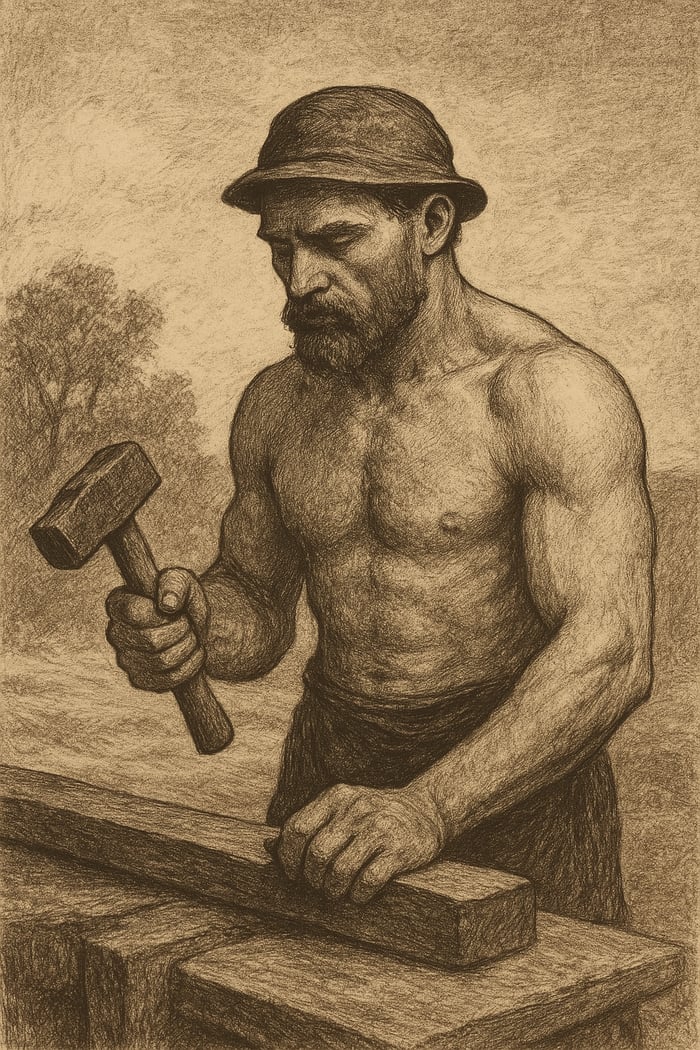
We Need Friendships With Other Men And I'm Going To Show You Why
I was in elementary school when I first built my tribe of male friends. We played wrestling and boxing, and even talked about our relationships and the kind of men we wanted to be. It was so cool.
However, when I went to high school, all of this vanished. I don't know if it was the change to the age when men are less expressive or if those dudes just moved on, but I lost all of those friends when I went to high school. It was very devastating to me. I thought that I had been building friendships with other guys that would stand the test of time, but evidently, I was not!
The Longing Of The Heart Can Not Be Avoided
Today, many men are lonely like I was in high school. This causes many issues for men, because, as you will see later on in this article, a man's mental health is heavily impacted by the number of close friends he has.
Could this be the reason why the suicide rate among men is so high? Many suicidal men don't have enough close male friends that they can speak to.
Again I ask, could it be that many of these men need another man to look them square in the eyes and say, 'I got you'?
Every Man Has A Deep God-Given Need To Be Recognized As A Man
Much of what we do as men (that people derogatorily ascribe to ego) is for identification, and that's because we have a God-given role, and that role requires us to be identified as men, as the image and glory of God according to 1 Corinthians 11.
1 Cor 11:6 For a man indeed ought not to cover his head, forasmuch as he is the image and glory of God: but the woman is the glory of the man.
Sadly, when this need to be identified as men never gets met or is then twisted so that the identification that a man seeks is identification with a manhood that is rife with promiscuity, sexual unfaithfulness and lascivious living, men are left with destruction, pain and unfulfilled needs. 
God wants men to be whole, and this wholeness comes from understanding that they are the image and glory of God, (ofcourse relationship with God here is vital for this discovery) and that they are competent or resourceful as men.
Men Are Longing For Fulfillment
Men parallel or mirror God in what pleases or makes them feel fulfilled. The same things that God desires for fulfillment or to be pleased are the same things that man desires for fulfillment. This is because man is the image and glory of God. Man is God's representative on the earth so God outfitted him to have some of the same drives as He does.
While doing this study it was remarkable to see how spot on these findings were, because I could easily see these masculine drives in myself. Every man reading this article will soon identify these as well.
In the book of Hebrews11:6 it says, For it is impossible to please God without faith, for he who comes to Him must believe that He is and that he's a rewarder of those who diligently seek Him. Here are the two needs of men that we see mirrored in God:

1. Men need to be recognized or seen as men.
The parallel for this in scripture concerning God is people must believe that He is.
People who interact with us must believe, know, or recognize that we are men. This is a need that every man has, and this need is actually fulfilled in friendship with other men.
Male friends are able to see the man in you in a way that women and children cannot.
Studies on male friendship (e.g., Sherrod, 1987; Way et al., 2011) show that men often feel like they can “let their guard down” around other men who intrinsically understand the same social pressures — such as expectations to be competent, stoic, or responsible.
The second thing that a man needs is he needs to know that people see him as a competent man. The parallel for this in Scripture says that those who come to God must believe that He (God) is a rewarder of those who diligently seek Him.

2. Men Need To Feel Adequate and Competent
Every man needs to know that he has what it takes. Am I good enough? Am I being the resourceful man in this situation?
If these two things are met in a man - manly identification and manly competence - he will feel happy and fulfilled.
These two needs are fulfilled through platonic male-male friendships.
This is not to belittle the relationship that a man has with his wife, but there is another side of the man that needs to be met in platonic male-male relationships.

Picture of a young Theodore Roosevelt
“I wish to preach, not the doctrine of ignoble ease, but the doctrine of the strenuous life, the life of toil and effort, of labor and strife; to preach it not as the doctrine of a few, but as the doctrine of all who are to be free, and of men who are to hold together as comrades in honor and loyalty.”
— Theodore Roosevelt, The Strenuous Life, 1899
These needs are first met by a man's Dad.
Dad, Do You See The Man I've Become?
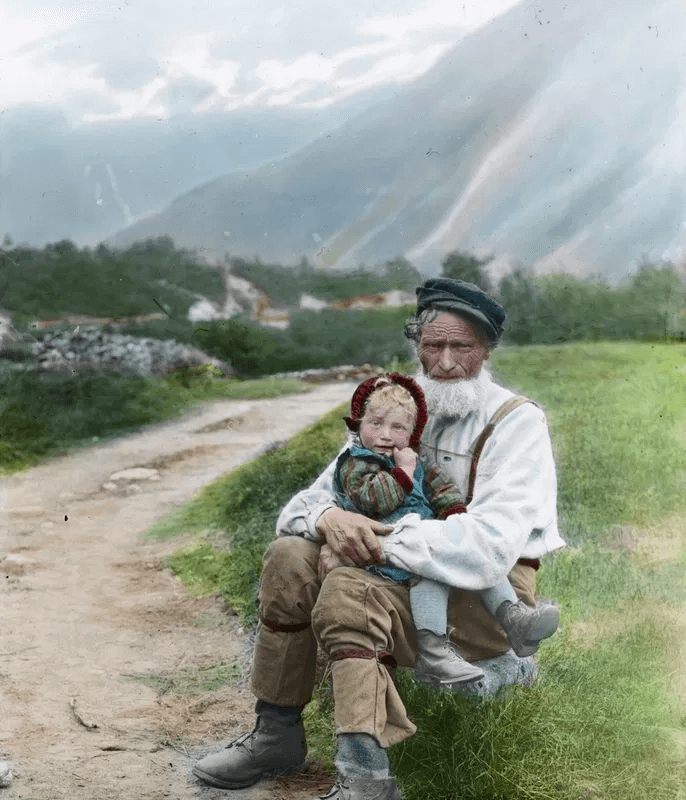
Boy experiences the masculine love and acceptance of his grandfather
Every man needs his Dad to confirm and affirm his masculinity by identifying the man in him; honoring his competence.
Look at what God The Father said to His Son, The Lord Jesus in Scripture:
Matthew 3:17 - And suddenly a voice came from heaven, saying, “This is My beloved Son, in whom I am well pleased.”
Notice He spoke to 2 areas of a man's need:
- Identity - This is My beloved Son
- Competence - in whom I am well pleased

Does Dad see me as a man? Does he see me as competent?
These are things that boys ask themselves, and if they don't feel that they meet their dad's expectations, they end up many times in gangs, doing all sorts of crazy things with women; trying to feel like they identify as men and that they are competent as men.
This is why as dads, we have to instill confidence in our boys; affirming that they are men and that they are competent as men.
 Fishermen Bonding As They Haul In A Great Catch of Fish
Fishermen Bonding As They Haul In A Great Catch of FishSadly, many Dads don't know that their sons need this confirmation and some are even absent. If you've never received confirmation from your Dad or if you have, but it was inadequate, God has set in place a relationship structure that is similarly rewarding for men - male friendships!
Male Bonding and The Friendship Dynamic
Male bonding is interesting in that we as men don't bond primarily over talking, but we bond over a shared activity in protecting or in reaching a goal. 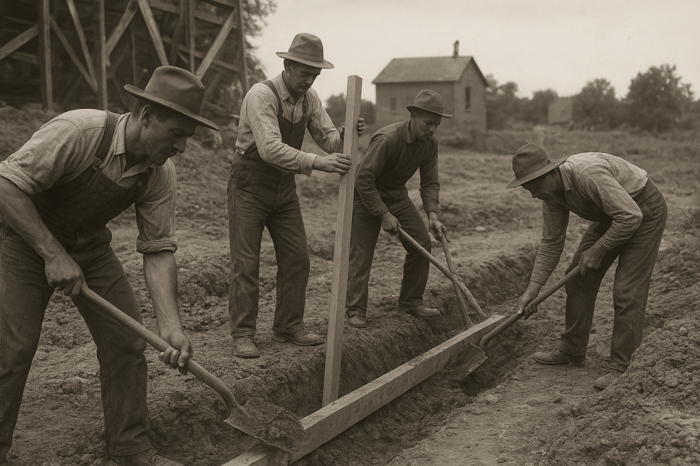
Let me introduce you to a male bonding hormone called vasopressin
Vasopressin is a hormone that promotes male social bonding especially in loyalty, territorial protection, and partner guarding behaviors seen in both animals and humans.
In men, vasopressin activity, associated with male bonding through shared struggle or cooperation, is not primarily associated with verbal intimacy. Source: Young & Wang, Nature Reviews Neuroscience (2004); Gobrogge & Wang, Frontiers in Endocrinology (2016).
In other words, male bonding happens when men are just being men. The man was created to build and protect according to Genesis 2 and it's in these "build and protect" activities that we bond with each other; confirming our individual manhoods.
Here are some more study-findings:
| Scholar | Paraphrased View |
|---|---|
| Michael Kimmel — Stony Brook University, Department of Sociology | Kimmel observes that men often find comfort and authenticity in male company because shared masculine norms create a space where they can drop the need to prove themselves to others (Guyland, 2008). |
| Raewyn Connell — University of Sydney, Faculty of Education and Social Work | Connell suggests that men’s interactions with one another offer a stable setting to perform masculinity without external scrutiny, allowing a version of self-expression that feels genuine (Masculinities, 2005). |
| Niobe Way — New York University, Department of Applied Psychology | Way finds that adolescent boys often express their most honest emotions with close male friends, feeling understood without needing to defend their vulnerability (Deep Secrets, 2011). |
| Judith A. Sherrod — University of California, Berkeley, School of Social Welfare | Sherrod notes that male friendships provide a space where men can share private concerns subtly and without embarrassment, offering an authentic but understated form of emotional support (Men’s Friendships, 1987). |
| Joseph H. Pleck — University of Illinois, Department of Psychology | Pleck’s research indicates that men are more likely to act naturally with other men because the environment affirms their identity and reduces anxiety about failing gender expectations (The Myth of Masculinity, 1981). |
| Deborah Tannen — Georgetown University, Department of Linguistics | Tannen suggests that same-gender communication allows men to speak freely in their preferred “report style,” making interaction feel more effortless and real (You Just Don’t Understand, 1990). |
| Mark McCormack — University of Oxford, Department of Education | McCormack reports that as social norms relax, young men increasingly find emotional safety among male peers, showing affection and honesty without fear of stigma (The Declining Significance of Homophobia, 2012). |
| David Gilmore — State University of New York, Department of Anthropology | Gilmore argues that men’s group settings provide ritualized zones of equality where they can express humor and solidarity, fostering a sense of authentic belonging (Manhood in the Making, 1990). |
| Eric Anderson — University of Winchester, Department of Sport, Health and Social Sciences | Anderson’s studies suggest that close male friendships now allow men to express vulnerability and care, feeling more fully themselves than traditional masculine norms once permitted (Inclusive Masculinity, 2009). |
| Robert Heasley — Indiana University of Pennsylvania, Department of Sociology | Heasley finds that male peer networks can become safe spaces for authenticity, where men reject competition and experience genuine emotional presence with one another (Men and Masculinities, 2005). |

God made it so that in the company of men, our God-given purpose is confirmed. Scripture speaks pointedly to this truth in Psalm 133:1-3 which says:
Behold, how good and how pleasant it is for brethren to dwell together in unity!2 It is like the precious ointment upon the head, that ran down upon the beard, even Aaron's beard: that went down to the skirts of his garments;3 As the dew of Hermon, and as the dew that descended upon the mountains of Zion: for there the Lord commanded the blessing, even life for evermore.
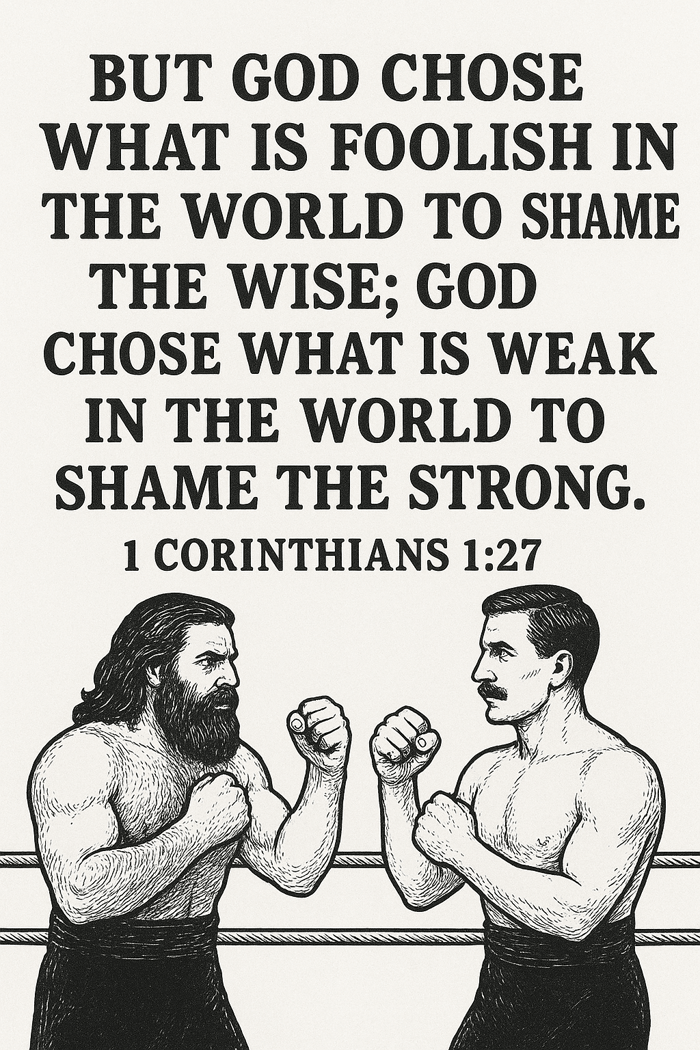 In a world replete with blurred gender lines, every man needs to hang out and have shared activities with other men to strengthen his identity and competence. This is what Proverbs shares when Scripture says:
In a world replete with blurred gender lines, every man needs to hang out and have shared activities with other men to strengthen his identity and competence. This is what Proverbs shares when Scripture says:
Iron sharpeneth iron; so a man sharpeneth the countenance of his friend. (Proverbs 27:17)
Here are some other bible verses about friendship among men.
Proverbs 17:17 – “A friend loves at all times, and a brother is born for a time of adversity.”
True friends are loyal and valuable in hard times.Ecclesiastes 4:9–10 – “Two are better than one, because they have a good return for their labor: If either of them falls down, one can help the other up. But pity anyone who falls and has no one to help them up.”
Friendship provides support and encouragement.Proverbs 27:17 – “As iron sharpens iron, so one person sharpens another.”
Friendship helps us grow, challenge, and improve each other.1 Samuel 18:1–3 – “After David had finished talking with Saul, Jonathan became one in spirit with David, and he loved him as himself. From that day Saul kept David with him, and Jonathan made a covenant with David because he loved him as himself.”
The deep friendship and loyalty between David and Jonathan is a prime biblical example.Job 2:11 – “When Job’s three friends heard of all this, they came from their homes… and they sat with him on the ground seven days and seven nights.”
True friends stand by us in suffering, even without words.Proverbs 18:24 – “One who has unreliable friends soon comes to ruin, but there is a friend who sticks closer than a brother.”
Faithful friends can be even more dependable than family in certain times.John 15:13 – “Greater love has no one than this: to lay down one’s life for one’s friends.”
Friendship involves sacrifice and selflessness.
Sadly, however, this world doesn't see the value of gender-defined norms and identification, but blurred gender lines are very destructive to men because they mess with his identity. And a man's identity (as the image and glory of God) is the reason that he does anything worth doing! To take away a man's identity is to take away his reason for being here.
This is most likely the reason transgender suicide rates are higher than the cisgendered population, but is even higher in transgender men than transgendered women. Identity is everything for a man. To remove a man's identity is to destroy him (literally gut him) from the inside out.
Modern Society Is Failing Men Because Men Have Very Few Male Only Spaces.
We need adequate and repeated visits to healthy male spaces to establish our identity and enhance our abilities.
Here's the timeline table:
Timeline of Male Bonding Activities and Their Neuropsychological Effects
| Era / Period | Male Bonding Activities (with Core Social Function) | Psychological / Neurobiological Effect (with Sources) |
|---|---|---|
| Early Agrarian (10,000–3,000 BCE) | Activities: Farming collectives, irrigation building, communal construction, warrior training. Core Function: Shared labor, defense, and alliance-building. | Sustained oxytocin-linked trust and vasopressin-driven cohesion through joint physical effort. Source: Richerson & Boyd, Not By Genes Alone (2005). |
| Bronze–Iron Age (3000–500 BCE) | Activities: Military service, craft guilds, temple work crews, initiation feasts. Core Function: Loyalty, mentorship, and intergenerational role transmission. | Vasopressin-based coalition bonding; testosterone-mediated competition and protection drives. Sources: Young & Wang, Nature Reviews Neuroscience (2004); Ehrenberg, The Warrior Ethos (1999). |
| Classical Antiquity (500 BCE–500 CE) | Activities: Military training, athletic contests, philosophical schools, symposiums. Core Function: Civic brotherhood and mentorship through shared excellence and leisure. | Endorphin and dopamine reward from joint exertion and laughter; mirror-neuron synchrony reinforces trust. Sources: Golden, Sport and Society in Ancient Greece (1998); Rilling et al., NeuroImage (2014). |
| Medieval Period (500–1500 CE) | Activities: Guilds, apprenticeships, monastic orders, knightly fraternities, hunting parties. Core Function: Trade-based trust networks and moral fraternity. | Ritualized cooperation sustains oxytocin-mediated trust and social stability. Source: Duby, The Knight, the Lady, and the Priest (1983). |
| Early Modern (1500–1800 CE) | Activities: Tavern societies, fraternal lodges, militias, exploration crews. Core Function: Civic solidarity and adventure-based loyalty. | Dopamine reward from exploration and shared risk; testosterone reinforces hierarchical bonding. Sources: Putnam, Making Democracy Work (1993); Ehrenberg, The Warrior Ethos (1999). |
| Industrial Era (1800–1950 CE) | Activities: Labor unions, sports clubs, military camaraderie, barbershops, hunting/fishing groups. Core Function: Camaraderie through collective work and recreation. | Endorphin and oxytocin release from regular group rituals and physical co-presence. Sources: Oldenburg, The Great Good Place (1989); Dunbar, Human Nature (2012). |
| Post-Industrial (1950–1990 CE) | Activities: Bowling leagues, veterans’ halls, volunteer firehouses, office teams. Core Function: Structured belonging and habitual male gathering. | Regular ritualized participation maintains dopamine–oxytocin balance and buffers stress. Source: Putnam, Bowling Alone (2000). |
| Digital / Modern (1990–2025 CE) | Activities: Online gaming, gym communities, fantasy leagues, podcast or men’s groups, sports fandom. Core Function: Reconstructed “tribal” belonging through shared interest and goal-oriented identity. | Partial oxytocin and dopamine reward from virtual synchrony; weaker hormonal reinforcement without physical co-presence. Sources: Holt-Lunstad et al., Annual Review of Public Health (2022); Krueger & Meyer-Lindenberg, Nature Neuroscience (2019). |
God didn't make men to be soft. Male friendships help to strengthen us like iron sharpens iron so we can be the strong, daring, protective and constructive men that God designed us to be. But we must chose to cast off the induced softness procured behind vacuous computer screens. 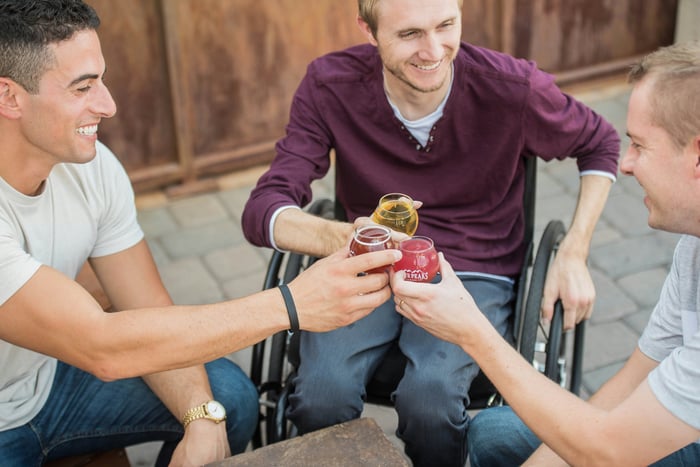
We need to meet up physically with other men for the full benefits of sharpening. This may involve playing sports like basketball or it may be in building a shed. Friendship with other men is not wanted or merely needed, it is vital!
We need to restore healthy, grounded male friendships where comradery has the freedom to elevate the health and lifestyles of men. The impetus to restoring this historic hallmark to our society has to be bolstered by men who see its benefits multiple perspectives. My mission, by the grace of God, is to present those here.
Men have a biological and psychological need for male camaraderie and brotherhood.
As we'll see in this power-packed article today, men need other men to live healthy, whole and productive lives. It's hard to believe in our lone-wolf culture, but men really do need other men, and deep down we all know it. Let's get into it, guys.
Enjoy our Quiz on Male Camaraderie.
Male Camaraderie — Bible Study Quiz
Answer one question at a time to explore what Scripture and Church teaching say about brotherhood and loyalty. ✝️
Psalm 133: 1-3 Behold, how good and how pleasant it is for brethren to dwell together in unity! 2 It is like the precious ointment upon the head, that ran down upon the beard, even Aaron's beard: that went down to the skirts of his garments;3 As the dew of Hermon, and as the dew that descended upon the mountains of Zion: for there the Lord commanded the blessing, even life for evermore.
Just as the Scriptures share...
Men need male friendships and the camaraderie they provide to be healthy!
STUDY: Umberson, D., & Montez, J.K. (2010). “Social relationships and health: A flashpoint for health policy.” Journal of Health and Social Behavior, 51(S), S54–S66.
This study found that men who maintain strong male friendships have lower rates of depression, cardiovascular disease, and early mortality.
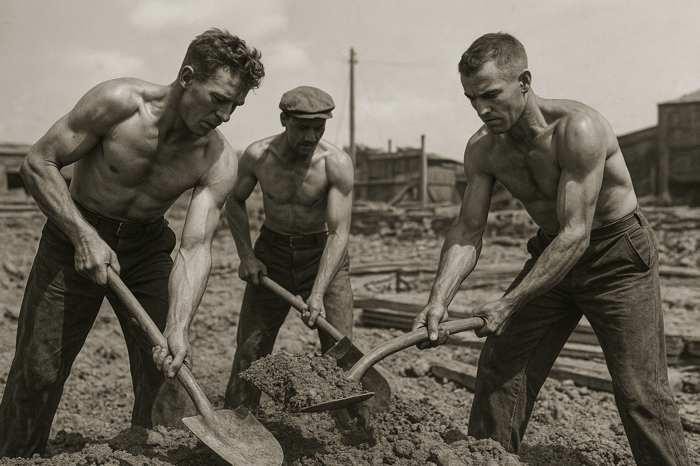
Health Benefits of having other men in your corner:
| Scholar & Source | Paraphrased Interpretation |
|---|---|
| Umberson & Karas Montez (2010) Social Relationships and Health: A Flashpoint for Health Policy | Male friendships provide emotional support that reduces stress and promotes mental health. Close male bonds are linked to lower risk of depression and anxiety. |
| Seidler et al. (2016) Health Psychology Review | Strong male friendships improve coping strategies and psychological resilience. Social support buffers against stress-related illnesses. |
| Smith & Christakis (2008) Social Networks and Health | Male friendships influence health behaviors, such as exercise and diet. Friends encourage healthy habits and discourage risky behaviors. |
| Cohen (2004) Social Relationships and Health | Emotional and social support from friends reduces physiological stress responses. Friendship is linked to lower cortisol levels and better cardiovascular health. |
| Rogers & Mikkelson (2010) Journal of Men's Health | Male friends contribute to emotional regulation and well-being. Social engagement among men reduces feelings of loneliness and improves life satisfaction. |
| Kawachi & Berkman (2001) Social Ties and Mental Health | Strong male networks correlate with lower morbidity and mortality. Friendship provides cognitive and emotional stimulation that supports long-term health. |
| Cornwell & Waite (2009) Social Science & Medicine | Male friends enhance self-rated health and functional ability. Friendships offer practical and emotional assistance that reduces daily stress. |
| Cole et al. (2007) Proceedings of the National Academy of Sciences | Social support, including male friendship, is linked to reduced inflammation markers. Friendship has measurable biological effects on health. |
| Holt-Lunstad, Smith, & Layton (2010) PLoS Medicine | Men with strong social connections, including friendships, have a 50% increased likelihood of survival over time. Social integration protects against premature mortality. |
| Lyons et al. (2018) Psychology of Men & Masculinity | Male friendships promote adaptive coping and stress resilience. Friends encourage positive health behaviors and provide emotional validation. |
| Bell, Harrell, & Bromell (2020) American Journal of Men’s Health | Male friendships are associated with lower levels of psychological distress. They enhance life satisfaction, reduce anxiety, and improve emotional well-being. |
| Umberson et al. (2014) Annual Review of Sociology | Close male relationships reduce risk of depression and improve self-rated health. Emotional intimacy in friendships enhances mental health outcomes. |
| Shor & Roelfs (2015) Social Science & Medicine | Male social connections decrease risk of cardiovascular disease. Friendships provide both emotional and behavioral benefits affecting physical health. |
| Williams et al. (2004) American Journal of Public Health | Male friends provide support that improves recovery from illness. Emotional and practical assistance reduces stress and promotes resilience. |
| Umberson, Crosnoe, & Reczek (2010) Annual Review of Sociology | Male friendships contribute to healthier lifestyles, lower substance abuse, and better adherence to medical advice. Friendship networks influence both mental and physical health. |
| Cacioppo & Cacioppo (2014) Perspectives on Psychological Science | Male social bonds reduce feelings of loneliness, which is linked to decreased mortality risk. Friendship improves cognitive function and emotional well-being. |
| Cornwell (2009) Journal of Health and Social Behavior | Male friends provide instrumental and emotional support that promotes physical activity. Friendship improves men’s engagement with health-promoting behaviors. |
| Segrin & Passalacqua (2010) Communication Research | Quality male friendships buffer against stress and depression. Open communication among men enhances coping and emotional regulation. |
| Brassai et al. (2011) Journal of Adolescence | Male peer friendships during adolescence predict long-term psychological resilience. Supportive male relationships reduce risk-taking and promote mental health. |
| Hartup & Stevens (1999) Child Development | Male friendships provide emotional security and teach conflict resolution. Healthy male social bonds in youth predict better social and emotional outcomes in adulthood. |
Men need friendships and brotherhood to reduce stress
STUDY: Seeman, T.E. et al. (2002). “Social relationships, stress, and health.” Psychosomatic Medicine, 64(3), 517–525.
Their research found that men with stronger social networks experience lower cortisol and stress markers, showing a biological benefit of camaraderie.
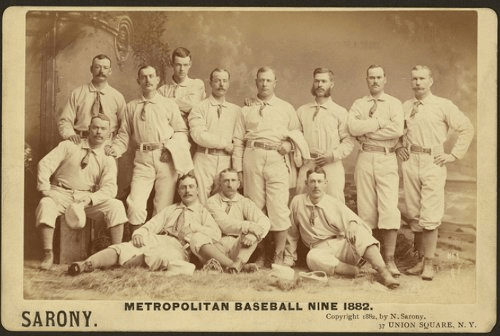
God through men's physiology has wired men for male friendships. He wired us this way because it would be beneficial to us and for His Kingdom and glory. Remember healthy friendships with other men remind you of your identity and purpose and strengthen your resolve and skills toward their fulfillment.
STUDY: Carter, C.S. (1998). “Neuroendocrine perspectives on social attachment and love.” Psychoneuroendocrinology, 23(8), 779–818.
Oxytocin release during cooperative or bonding activities strengthens male-male social attachment, not just romantic bonding.

The Church Fathers on Camaraderie Among Men
| Church Father (Work / Reference) | Quote | Theme / Insight |
|---|---|---|
| Augustine of Hippo Confessions, Book 4 | “Without friends, no one would choose to live, though he had all other goods.” | True friendship is essential for a meaningful Christian life. |
| Augustine Sermon 299D | “In friendship there is nothing false, nothing feigned. Friendship is genuine when founded in Christ.” | Brotherhood must be rooted in Christ, not self-interest. |
| Augustine Letter 258 | “Let us love not in word only but in deed and truth, as friends united in one soul before God.” | Authentic friendship reflects divine unity. |
| John Chrysostom Homilies on 1 Corinthians 7 | “When two are bound together in love of Christ, no power can break that bond.” | Christ-centered brotherhood is unbreakable. |
| Chrysostom Homily on Ephesians 20 | “Nothing so welds our souls together as the bond of love.” | Brotherhood in Christ forges spiritual strength. |
| Chrysostom Homily on John 72 | “A friend is more to be longed for than the light itself; I speak of a true friend.” | Christian friendship surpasses material needs. |
| Basil the Great Letter 2 to Gregory Nazianzen | “We seemed to be two bodies with a single spirit… our single object and ambition was virtue.” | Deep brotherhood forms through shared spiritual pursuit. |
| Basil the Great Long Rules 7 | “Brotherly love joins souls and makes of many one.” | Brotherhood creates spiritual unity among men. |
| Gregory Nazianzen Oration 43 (Funeral Oration for Basil) | “We shared the same lodging, the same table, the same desires… one soul in two bodies.” | Gregory’s tribute to Basil models Christian male friendship. |
| Tertullian Apology 39 | “See how they love one another, and how they are ready to die for each other.” | Early Christians were recognized by their brotherly love. |
| Cyprian of Carthage On the Unity of the Church | “The bond of brotherhood should remain unbroken, knit together by mutual love.” | Brotherhood strengthens Church unity. |
| Athanasius of Alexandria Letter to Serapion | “When we stand together as brothers, the enemy is powerless.” | Brotherhood in faith is a defense against spiritual attack. |
| Ambrose of Milan On Duties of the Clergy 3.22 | “Friendship is a virtue, and its bond is faithfulness.” | Faithfulness is the foundation of brotherly love. |
| Clement of Alexandria Stromata 4.18 | “He who loves his brother loves God; for love of the brother leads to the knowledge of God.” | Brotherhood leads to spiritual maturity. |
| Origen Homilies on Joshua | “Two joined in brotherhood are stronger than ten thousand apart.” | Brotherhood multiplies spiritual strength. |
| Ignatius of Antioch Letter to the Ephesians 20 | “Be united with your bishop and with one another, as the strings to a harp.” | Brotherhood creates harmony in the Body of Christ. |
| John Cassian Conferences 16 | “The friendship of brethren, when rooted in Christ, is a wall against temptation.” | Camaraderie protects believers from moral failure. |
| Jerome Letter 22 to Eustochium | “Let holy friendship bind you with a few chosen companions who strengthen your walk.” | Choose companions who edify spiritually. |
Jonathan and David — Bible Friendship Quiz
Explore the covenant friendship between Jonathan and David. Answer one question at a time to understand loyalty, virtue, and godly brotherhood. ✝️
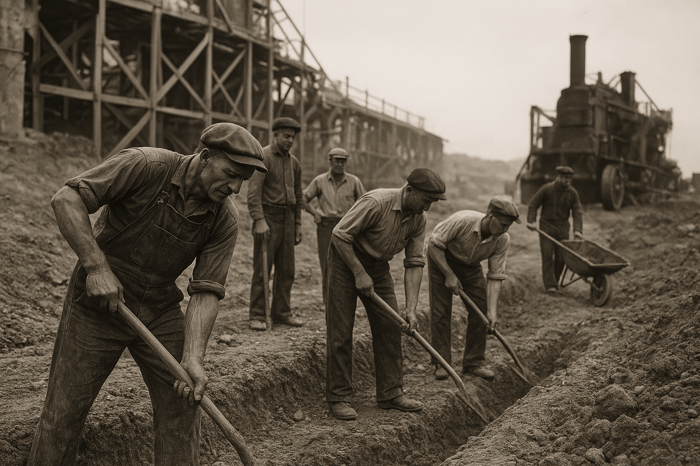

Church Fathers on the Friendship of David and Jonathan
| Church Father (Work / Reference) | Quote / Commentary | Insight |
|---|---|---|
| John Chrysostom Homily on 1 Corinthians 7 | “See the love of Jonathan for David—not born of nature, but of virtue; not of blood, but of the soul. For he loved him even more than his own life.” | Chrysostom points to Jonathan’s sacrificial loyalty as a model for Christian friendship. |
| John Chrysostom Homily on the Statues 3 | “Such was the friendship of Jonathan toward David, stronger than envy, stronger than a kingdom, stronger than death.” | He emphasizes that Jonathan’s love triumphed over personal ambition and danger. |
| Ambrose of Milan On the Duties of the Clergy 3.22 | “Jonathan preferred friendship to a kingdom; he gave up his right to the throne for the sake of his friend David.” | Ambrose lifts up Jonathan as a model of selflessness and brotherly love. |
| Augustine of Hippo City of God 14.7 | “Jonathan loved David with a holy love, a love that seeks not its own, but the good of the beloved.” | Augustine distinguishes spiritual friendship from selfish or carnal bonds. |
| Augustine Sermon 299D | “Jonathan loved David as his own soul… such love is the fruit of virtue, not desire.” | Augustine frames their friendship as pure, covenantal, and God-centered. |
| Gregory the Great Moralia in Job 22.8 | “Jonathan, loving David with entire devotion, prefigured the love of the righteous for the King to come.” | Gregory sees their bond as typological—pointing to the Church’s love for Christ. |
| Jerome Letter 52 | “Jonathan’s love for David was free from passion; it was the affection of one soul cleaving to another in God.” | Jerome contrasts biblical male friendship with worldly desire, showing its spiritual nature. |
| Theodoret of Cyrus Questions on the Octateuch | “Their love was a covenant love, sealed not by bloodline, but by godliness.” | Theodoret highlights their covenant as a sacred model for Christian brotherhood. |
| Cyril of Alexandria Commentary on 1 Samuel (fragment) | “Jonathan stands as a figure of the faithful soul cleaving to the Anointed One, David.” | He interprets Jonathan’s love typologically, as a figure of believers’ love for Christ. |
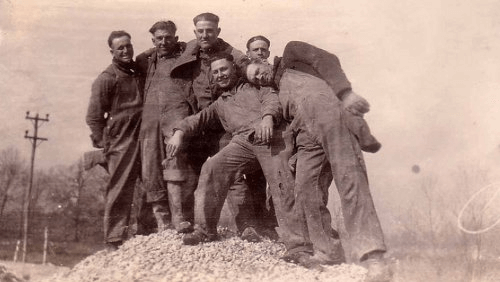 I hope that you enjoyed this article on male friendship. For now, I leave you with this table of Biblical scholars on friendship between men.
I hope that you enjoyed this article on male friendship. For now, I leave you with this table of Biblical scholars on friendship between men.
| Scholar & Source | Paraphrased Interpretation |
|---|---|
| John Chrysostom (c. 347–407) Homilies on Romans | Male friendship provides mutual moral support and accountability. It helps men remain steadfast in virtue and encourages spiritual growth. |
| Theodoret of Cyrus (c. 393–458) Commentary on Proverbs | Male companions share wisdom and reinforce righteous conduct. True friendship fosters moral improvement and practical guidance. |
| Ambrosiaster (4th cent.) Commentary on Paul’s Epistles | Friendship strengthens piety and adherence to God’s commandments. Friends aid each other in resisting temptation and sin. |
| Augustine of Hippo (354–430) Confessions; Letters | Male friendship mirrors divine love by fostering loyalty and virtue. It provides emotional support and encouragement in spiritual practice. |
| Thomas Aquinas (1225–1274) Summa Theologica II–II, Q.26 | Friendship among men cultivates shared virtue and mutual good will. It promotes moral excellence, accountability, and practical assistance in life. |
| Nicholas of Lyra (1270–1349) Postillae Perpetuae | Male friendship encourages patience, loyalty, and trust. Friends guide each other in ethical and spiritual matters. |
| John Wycliffe (c. 1328–1384) Commentary on Proverbs | Male companionship helps prevent sin through accountability. Friends provide guidance, correction, and moral support. |
| Desiderius Erasmus (1466–1536) Institutio Principis Christiani | Male friends teach humility, patience, and virtuous living. Friendship offers honest counsel, avoiding flattery while encouraging improvement. |
| Martin Luther (1483–1546) Table Talk; Letters | Friendship provides moral and spiritual support during trials. True companions exhort one another to faithful and upright living. |
| Philip Melanchthon (1497–1560) Loci Communes | Male friendship strengthens faith, learning, and piety. It cultivates virtue and encourages obedience to God. |
| John Calvin (1509–1564) Institutes of the Christian Religion | Friendship sustains men in moral and spiritual pursuits. Friends offer counsel, correction, and encouragement in godly living. |
| Theodore Beza (1519–1605) Commentaries on Paul | Male companionship reinforces moral resilience. Friends aid each other in resisting vice and maintaining virtue. |
| Cornelius à Lapide (1567–1637) Commentaria in Sacram Scripturam | Friendship teaches loyalty, patience, and ethical conduct. Companions encourage moral and spiritual excellence. |
| Matthew Poole (1624–1679) Synopsis Criticorum | Male friendship provides guidance, accountability, and encouragement. It strengthens righteousness and spiritual discipline. |
| Matthew Henry (1662–1714) Commentary on Proverbs | True male friends safeguard against vice. They offer counsel, encouragement, and support in ethical and spiritual matters. |
| John Locke (1632–1704) Paraphrase and Notes on Proverbs | Male friendship improves character and fosters virtue. Friends provide moral guidance and emotional support. |
| J. A. Bengel (1687–1752) Gnomon of the NT | Friendship reinforces piety and practical morality. Companions uphold each other in ethical and spiritual life. |
| John Gill (1697–1771) Exposition of the Bible | Friendship among men is a tool of providence for moral support. Friends exhort each other toward righteous living. |
| Philip Doddridge (1702–1751) Family Expositor | Male friendship nurtures godliness and ethical conduct. It provides correction, guidance, and encouragement in spiritual practice. |
| John Wesley (1703–1791) Explanatory Notes upon the Bible | True male friendship strengthens faith and virtue. Friends bear one another’s burdens and spur each other to holiness. |
| Jonathan Edwards (1703–1758) Religious Affections | Friendship is instrumental in moral and spiritual refinement. Companionship encourages accountability and love of God. |
| John Fletcher of Madeley (1729–1785) Checks to Antinomianism | Male friends foster obedience and virtue. They provide support in resisting sin and growing spiritually. |
| Thomas Scott (1747–1821) Commentary on Proverbs | Male friends act as companions in virtue and religious practice. Friendship is a safeguard against temptation and moral failure. |
| Charles Hodge (1797–1878) Commentary on Proverbs | Friendship strengthens character and encourages pious living. Friends serve as guides and moral supports. |
| Albert Barnes (1798–1870) Notes on the Bible: Proverbs | Friendship offers counsel, comfort, and accountability. True companions help maintain virtue and faith. |
| Hermann Olshausen (1796–1839) Commentary on Proverbs | Companionship fosters moral and spiritual improvement. Friends exhort each other toward virtue and wisdom. |
| J. P. Lange (1802–1884) Lange’s Commentary on Proverbs | Friendship is essential for moral growth and support. Male friends strengthen one another against vice and error. |
| Henry Alford (1810–1871) The Greek Testament | Male friendship is God-ordained, fostering mutual support. It cultivates patience, virtue, and pious counsel. |
| John Eadie (1810–1876) Commentary on Proverbs | Companionship encourages virtue and moral integrity. Friends assist each other in living according to God’s law. |
| Frederic Godet (1812–1900) Commentary on Proverbs | Male friendship supports character and spirituality. True friends provide guidance and correction in love. |
| H. A. W. Meyer (1800–1873) Kritisch-Exegetischer Kommentar | Male friendships nurture moral and spiritual growth. Companions uphold one another in righteousness. |
| Franz Delitzsch (1813–1890) Biblical Commentary | Companionship strengthens faith and morality. Friendship is practical and spiritual in support. |
| Richard C. Trench (1807–1886) Synonyms of the NT | Friendship fosters virtue, accountability, and mutual guidance. True friends help each other walk in righteousness. |
| Charles Ellicott (1819–1905) Commentary on Proverbs | Male friends provide moral guidance and encouragement. Friendship encourages practical godliness and accountability. |
| E. H. Plumptre (1821–1891) Cambridge Bible | Friendship is a vehicle for moral and spiritual edification. Companions advise, correct, and encourage each other. |
| William Kelly (1821–1906) Notes on Proverbs | Friendship strengthens virtue and obedience. Friends serve as moral and spiritual partners. |
| Brooke Foss Westcott (1825–1901) Commentary on Proverbs | Companionship encourages piety, virtue, and practical obedience. Friendship provides support and accountability. |
| Henry Parry Liddon (1829–1890) Lectures on Proverbs | Friendship is a tool for moral and spiritual growth. True companions cultivate virtue and mutual counsel. |
| Marcus Dods (1834–1909) Expositor’s Greek Testament | Friendships reinforce moral character and faith. Companions aid one another in righteousness. |
| Hermann Cremer (1834–1903) Biblico-Theological Lexicon of NT Greek | Male friendship fosters virtue, accountability, and spiritual edification. True companions uphold each other in godly conduct. |
| Alexander MacLaren (1826–1910) Expositions of Proverbs | Friends strengthen each other morally and spiritually. Friendship aids in resisting temptation and growing in virtue. |
| Joseph Parker (1830–1902) The People’s Bible | Companionship promotes moral and spiritual support. Friends encourage one another to live righteously. |
| Alfred Plummer (1841–1926) Commentary on Proverbs | Male friendship is vital for moral guidance and spiritual accountability. Friends strengthen each other in faith and virtue. |
| William Sanday (1843–1920) Cambridge Bible | Friendship is an instrument for moral and spiritual growth. Companions guide, correct, and encourage one another. |
| James Hastings (1852–1922) Dictionary of the Bible | Friendship cultivates virtue, loyalty, and piety. True friends provide moral counsel and encouragement in faith. |
